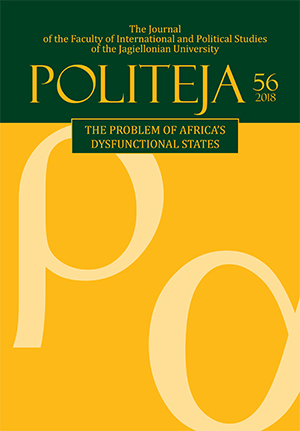Portuguese Colonial Legacy in Luso-African States – a Factor Leading to State Dysfunctionality or Favorable to Development?
Portuguese Colonial Legacy in Luso-African States – a Factor Leading to State Dysfunctionality or Favorable to Development?
Author(s): Joanna MormulSubject(s): Politics / Political Sciences, Sociology
Published by: KSIĘGARNIA AKADEMICKA Sp. z o.o.
Keywords: Luso-Africa; Portuguese colonialism; state dysfunctionality; colonial legacy
Summary/Abstract: Among historical factors leading to state dysfunctionality phenomenon on the African continent, colonial legacy is most often indicated. It is a common perception that colonialism understood not only as colonial rule but also as colonial legacy is the main responsible for today’s African crises of statehood. The study focuses on Luso-African continental states (Angola, Mozambique, Guinea-Bissau) that have quite a similar historical experience, not only the difficult and long war for independence, but also lack of political stability in the postcolonial period (civil wars, coups d’état, experiments with socialism and one-party system). The article is an attempt to reflect on the hypothesis that the Portuguese colonial legacy can be perceived as a historical factor leading to state dysfunctionality, however its evaluation should be more complex, as from today’s perspective it could bring some benefits that derive most of all from the common official language, similar historical experience and some sense of the Luso-African or Lusophone identity. The paper is based on the qualitative analysis of the already existing data, critical reading of the literature of the subject, as well as qualitative data gathered during author’s study visits to Portugal, Mozambique and Guinea-Bissau.
Journal: Politeja - Pismo Wydziału Studiów Międzynarodowych i Politycznych Uniwersytetu Jagiellońskiego
- Issue Year: 15/2018
- Issue No: 56
- Page Range: 41-65
- Page Count: 25
- Language: English

